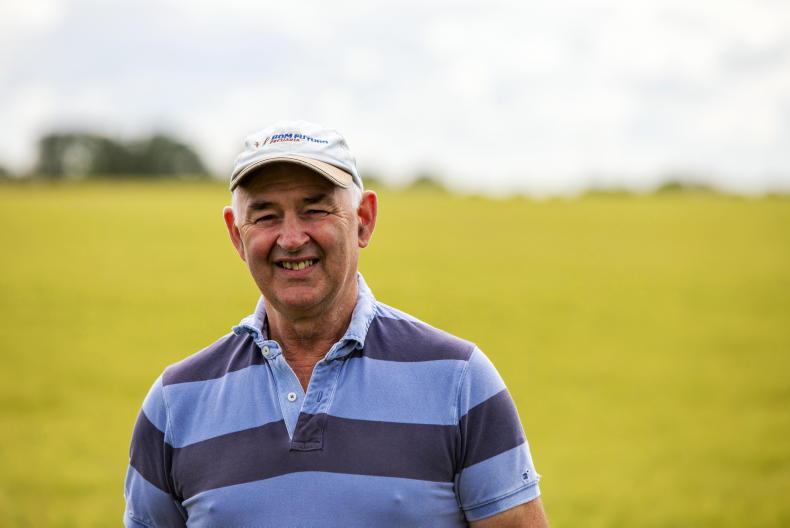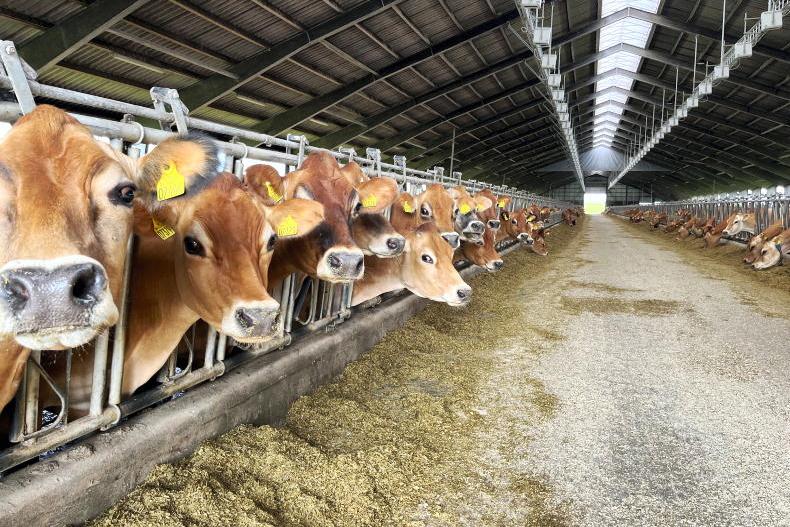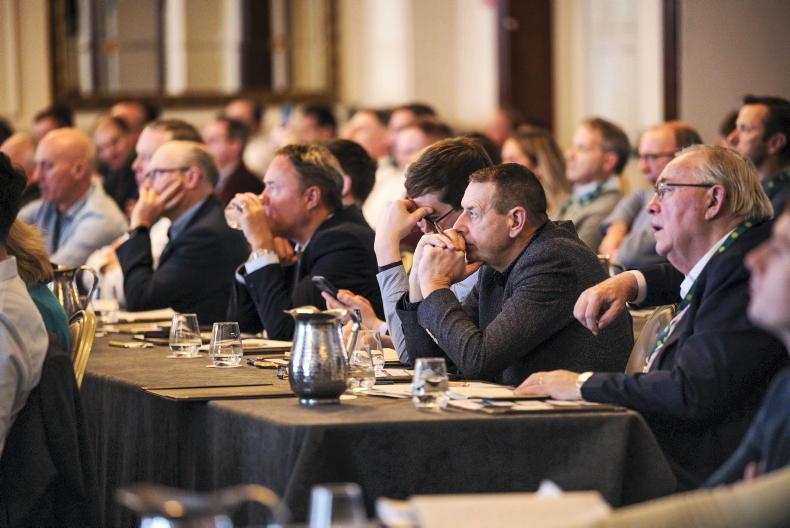We must work together to avoid that the carbon debate and the emissions from agriculture becomes our very own Brexit.
This is when a very complex issue gets pulled in two directions, is reduced to two opposites, fails to get fully discussed and gets decided by loud voices that have a myriad of objectives.
We should establish the facts and expect equity and some perspective in the interest of reaching a direction for us to follow.
As there are still many details yet to emerge and the very important issue of land use is still to be decided, some points come to mind.
Full bandwagons
The bandwagons are all full. Over the past few weeks, there have been many scrambling to get on board their various favoured bandwagons.
The one marked 'idealism and unsubstantiated personal opinion' is overloaded. Notwithstanding this, getting all the various wagons heading in the same direction will take time and skill.
No opinion, no matter how passionately presented, will ever morph into fact
If we think of the world greenhouse gas (GHG) output as a football pitch, Ireland’s share of that pitch is the penalty spot.
The often acrimonious and, at times, anguished debate regarding the emissions from farming had more heat than light over the past few weeks.
There was a lot of facile blaming and avoidance of the real issues going on. Yes, it’s true that farming is a major source of emissions and must change, but the blame game is lopsided and unfairly targeted at one sector.
If we take the oil and gas companies, whose products are more directly linked to emissions, why are they not, therefore, likewise taxed and punished?
Aviation fuel
A prime example is that aviation fuel has an exemption from tax since 1949. Time for equity and levelling up.
Society has some huge decisions and choices to make. Most will be unpopular, but, for a start, we should stop subsidising fossil fuels with public funds.
The harsh reality is unpalatable for politicians and society. Having a scapegoat industry serves as a useful distraction from what will be very unpopular decisions.
The only fair and transparent solution would be proper carbon accounting of everything. We all use food, transport and holidays, etc, and all of these have a carbon footprint.
A utopian future would have us all with our personal carbon budget. How you use it depends on the individual. Far-fetched, I know, but in the meantime let’s look at the facts.
Dealing with facts
Dealing with facts at a time of national debate is always a challenge. Whose facts and how they get to an open forum is as often dependent on a radio or TV producer’s choice of expert as it is the passion and availability of a commentator. No opinion, no matter how passionately presented, will ever morph into fact.
Presenting a case for how we proceed to reduce our carbon impact should not be interpreted as either avoidance of the issue or any sense of denial that the climate is changing.
A look at the Copernicus EU data clearly shows the extent and effect across the continent, including the Arctic and Greenland, that climate change is having, in terms of wildfires, desertification, flooding and ice melting. We do indeed have an existential crisis.
Of course, facts can get muddled enough by a skilled presenter to imply something completely different.
A prime example recently was a well-known academic being interviewed beside a crumbling unstable shoreline and equating the erosion to the immediate need to reduce cow numbers in Ireland.
Coastline erosion has been happening since the last ice age and will be a feature of coastline/sea interaction forever.
Another example of lazy, but convenient, commentary was equating the recent Donegal flooding or the very hot day with modern farming practices.
Periodic extreme weather events are not new. This is not a reason to do nothing, but we must stop shoehorning individual examples as justification for why we need serious action.
Implication
A Dublin-based politician this week implied that we, farmers, were led into unviable and unsustainable farming systems by a government in the hands of farmer lobby and big business groups. The implication by her and others is that we need to be saved from ourselves.
We also had a minister suggesting a bright future for farmers if we change to his vision of the world, implying that we need help and that our current systems are bad or broken. I have never felt so patronised since I started to farm.
Some appear to simply believe that you change production and supply and all will be fine
A pet pedantic point of mine is the 'save the planet' call. The planet was here before us and will be here after us. The real point of discussion is for how long will we be on it and what will the rate of decline of people be?
Another irritant is the 'save the world for our children and grandchildren'. Another emotive and laudable ambition, but when we look at how we currently behave when it comes to looking after the people most affected by famine and disasters, what evidence do we have to suggest that we will have improved in our care into the future?
It is true that we do not have an obligation to feed 40 million people around the world or the less reasonable claim that 'nobody will starve if we don’t produce the food'.
This kind of comment ignores the fundamental principle of how the world works. We are part of a global economic and environmental structure. They exist in tandem.
Changing from this model will take a huge shift in consumer behaviour. Some appear to simply believe that you change production and supply and all will be fine.
Demand
Consumers dictate what is produced by their actions and the actions of the retail outlets. They are influenced, and somewhat manipulated, by the retailer, but the base point is that farmers produce to reflect demand.
Remington stopped making typewriters when demand disappeared. Phone boxes, likewise, when no longer required. Food is a basic need and consumers create the demand.
The appetite for what we produce is growing; it makes no sense to relocate production to a less environmentally favourable country. Ceasing output in one place does not equal a cessation in consumption and global behaviour change.
As Ireland moves towards internationally agreed targets, it is likely that we will have more push back and resistance, but, to a great extent, the die is cast. The high moral ground for being ahead of the rest of the world in combatting this global problem will count for nothing.
It will count as a huge cost to society here if we fail to get most of the world to be in unison. Consider global carbon emissions as a giant canvas on which we all must paint our respective pictures.
Unilateral action
Ours is a tiny bit on this canvas: one 10th of 1% of that canvas, close to the bottom, with the big GHG emitters at the top of the frame. We can paint the landscape equivalent of a beautiful Paul Henry painting down near the bottom of the canvas, but if the US, China, Russia and Brazil, to name but a few, not only fail to paint their fair share, but indeed to continue to splash the equivalent black or brown paint on top of their canvas sections, our contribution will not only be swamped, but it will all have been for nothing.
This, and I stress this point, is not making a case for doing nothing but let us double down on the case for unilateral action. Sometimes the prize for being best in class is not a good one.
There is one aspect of climate change that some find reprehensible but is likely, that is that some parts of the world will benefit or, at a minimum, remain productive when other parts get destroyed from a food production perspective.
Ireland is likely to be a Goldilocks area - ie just right for food production for years to come. As we get lectured by some on our moral and responsible duty, might providing food for less favoured areas not be a better use of our moral duty?
Change will affect individual farm businesses. It will hit regional commercial and social order and it will hit the national exchequer.
It is time to consult widely, wisely and long. Do not let the unintended consequences be such that we regret our good intentions. Do not let this be our very own Brexit equivalent.









SHARING OPTIONS